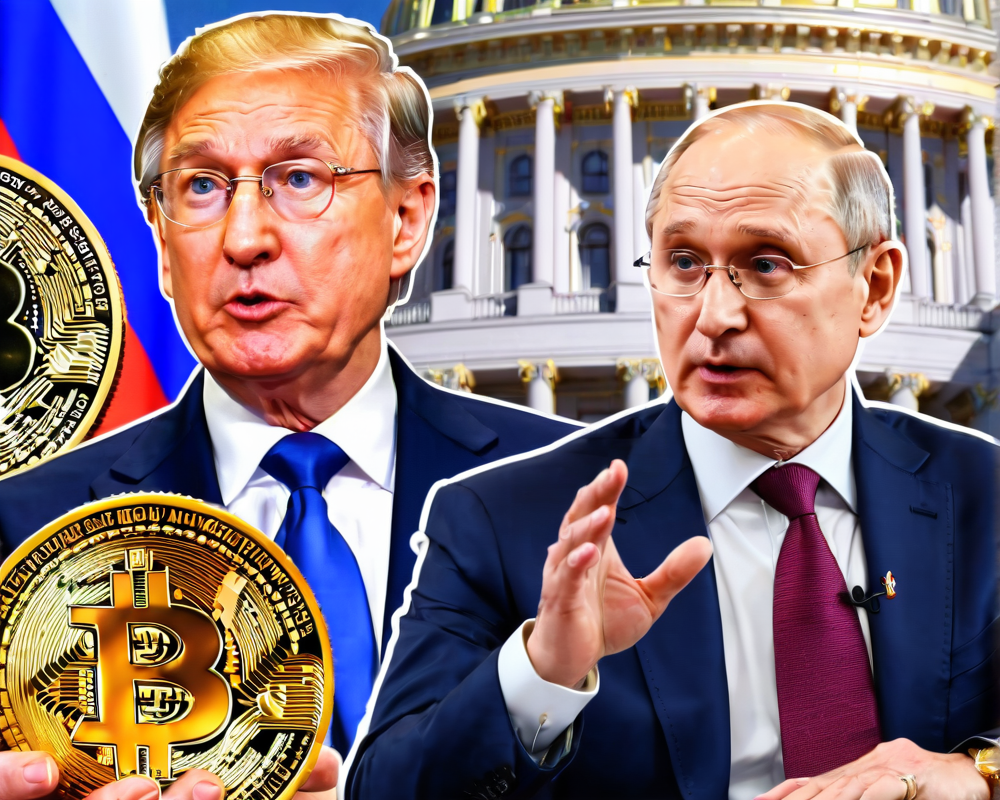What’s Cooking in Congress?
In a proactive move aimed at strengthening financial sanctions, Representative Brad Sherman is gearing up to introduce a bill designed to crack down on U.S. businesses handling cryptocurrency transactions with individuals and banks in Russia. This initiative comes in tandem with a similar legislative effort by Senator Elizabeth Warren, highlighting a bipartisan commitment to curb the financial channels available to Russia amidst escalating geopolitical tensions.
The Power of the Pen: What the Bill Entails
At a recent hybrid markup meeting of the House Financial Services Committee, Sherman described how his forthcoming legislation would grant the Biden administration explicit authority to instruct crypto exchanges governed by U.S. law to cease transactions with Russian-based crypto wallets. This mirrors a proposal made by Warren earlier, and while neither bill’s text is officially available yet, sources suggest it aims to impose significant restrictions.
Key Provisions of the Proposed Legislation
- Empowers the Treasury Department to halt crypto exchanges from processing any transactions linked to Russian nationals.
- Mandatory reporting for U.S. taxpayers on crypto transactions exceeding $10,000, funneling this information to the Financial Crimes Enforcement Network (FinCEN).
- Establishes a clear directive for crypto exchanges to refrain from business with Russian crypto wallets until the conflict subsides.
Crypto in the Crosshairs: Responses from Industry Leaders
Sherman, known for his vocal criticism of digital currencies, drew on Ukraine’s Minister of Digital Transformation’s plea, calling on exchanges to block Russian users outright. Yet, the industry response has been varied: Binance CEO Changpeng Zhao declared compliance with sanctions, but hesitated to restrict interactions with all Russian wallets, suggesting a more nuanced approach may be necessary.
The Debate: Balancing Freedom and Responsibility
Jesse Powell, CEO of Kraken, emphasized a need for legal backing before taking such drastic measures against Russian accounts. In response to these developments, a Binance spokesperson highlighted a commitment to the broader mission of crypto—a tool of financial freedom, not restriction. A delicate balance exists between adhering to the sanctions and not penalizing innocent users caught in a complex geopolitical situation.
Voices from Ukraine: A Call for Action
The call for action resonates not just in legislative halls but also from within Ukraine itself. Mykhailo Fedorov, Ukraine’s digital transformation minister, is rallying support from crypto exchanges, urging them to block not only sanctioned individuals but all wallets associated with Russian users. This comprehensive approach aims to prevent any form of financial support flowing from cryptocurrency to Russia.
A Shift in Market Dynamics
The landscape of cryptocurrency exchanges is evolving, with figures like Michael Chobanian from Ukraine’s Kuna exchange confirming a halt on all support for the Russian ruble. This move signals a potential shift in how crypto exchanges operate in the face of international crises, aiming to draw distinct lines between those in compliance with sanctions and those taking a more laissez-faire stance.
Conclusion: Watching the Legislative Ball Drop
As these legislative efforts evolve, the implications for cryptocurrency users and exchanges are significant. The interplay of financial freedom and legislative oversight will be crucial in shaping how the industry responds to current global events. With the winds of change blowing in Washington, only time will tell how effective these measures will be in curbing Russian influence in the crypto space.




